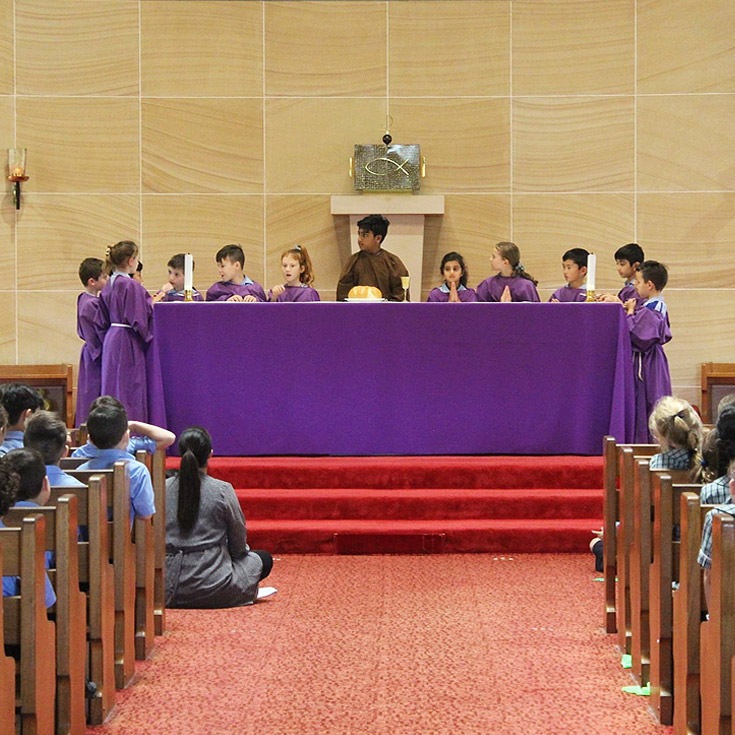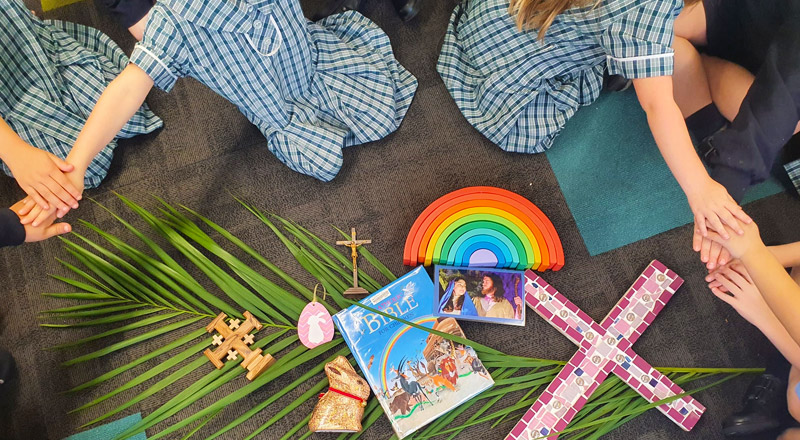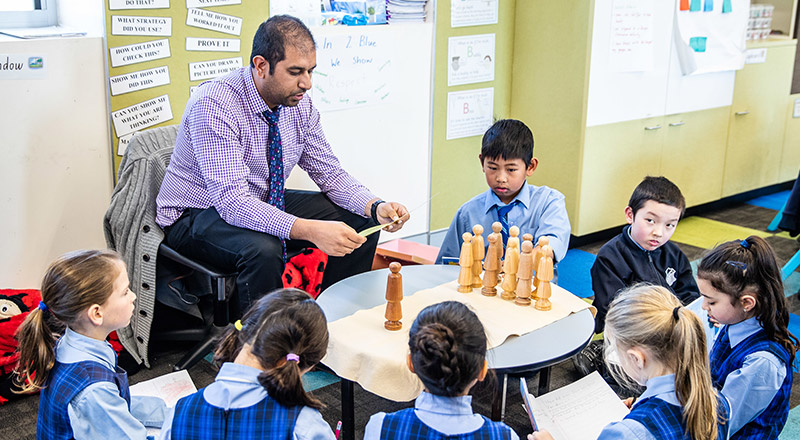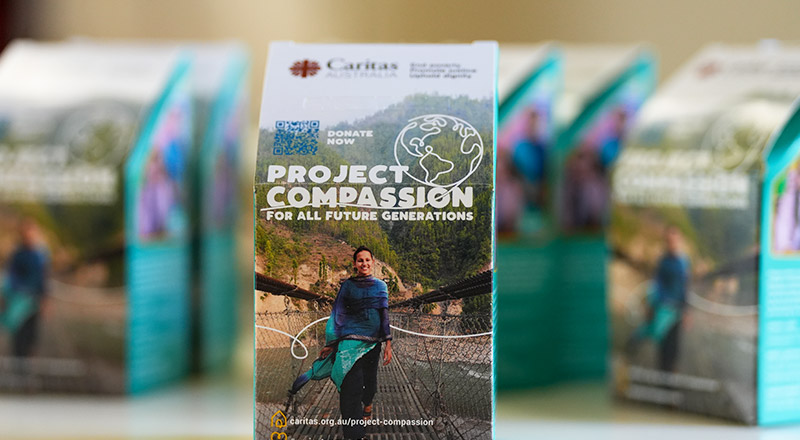St Michael's is a great place for students to grow in faith and learning.
Led by caring staff committed to sharing the Catholic faith with students in partnership with families, our welcoming community supports students and staff to thrive. We value each student as an individual and share the values of the Gospel to help them discover the hope that is within and to experience a meaningful and flourishing life.
Students in our school come from a variety of religious backgrounds and beliefs - a student will not feel out of place if they do not share the Catholic faith.

All schools in the Diocese of Parramatta:
Sharing our Catholic tradition
We ensure that students come to know Jesus Christ through the promotion of Catholic tradition and teaching. Faith experiences are woven throughout the life of the school and school values, and are realised within the Religious Education program, liturgy, prayer, reflection, religious symbolism, Feast Days and social justice activities to reach out to those most in need. Our school community prays the Angelus (traditional midday prayer) together each day. In partnership with our local parish, there are also many chances to attend Mass.
The school has a strong relationship with the local parish. This includes coming together for special celebrations and to support students to grow in faith. St Michael's also runs school-based sacramental programs to support the efforts of the local parish and to support family-centred preparation for reconciliation, eucharist and confirmation.
Celebrating our faith
We place great importance on the contribution of visual and performing arts to the liturgical life of our school. Live music, singing, drama, symbols, visual art works and liturgical movement are incorporated into celebrations, providing meaningful and relevant faith experiences for young people.
Celebrating our faith

Religious Education
Our specialist teachers share their faith and example with students, helping them to flourish as they develop specific knowledge, understanding, skills and strong values, with Christ as the centre.
St Michael's aims to share with students the importance of our Catholic values in everyday life, and each week we nominate a particular value for students to focus on, such as sharing. At the end of the week awards are given to those who have best displayed this value throughout the week.
Religious Education

Social justice initiatives
Our students are offered a wide variety of local community activities to help develop a sense of pride, respect and responsibility for themselves and others. This positive participation and actions can be seen in how we interact and learn with one another, work collaboratively and take ownership of our behaviour as well as active involvement in faith-based experiences.
Social justice initiatives

Our reconciliation strategy
Schools in the Diocese of Parramatta are at the beginning of an important journey, endeavouring to make significant contributions to reconciliation within the community, locally and nationally.
Catholic Schools Parramatta Diocese (CSPD) recently launched its first Reconciliation Action Plan (RAP). We will be guided by the CSDP RAP as we work to embed practices that further support members of our learning community who identify as Aboriginal and/or Torres Strait Islander, engage meaningfully and respectfully with members of the local Aboriginal community, and make contributions to the national journey towards reconciliation.
We look forward to welcoming you to our community!
Contact the school today to enrol and discover the many benefits of joining the St Michael's learning community.

